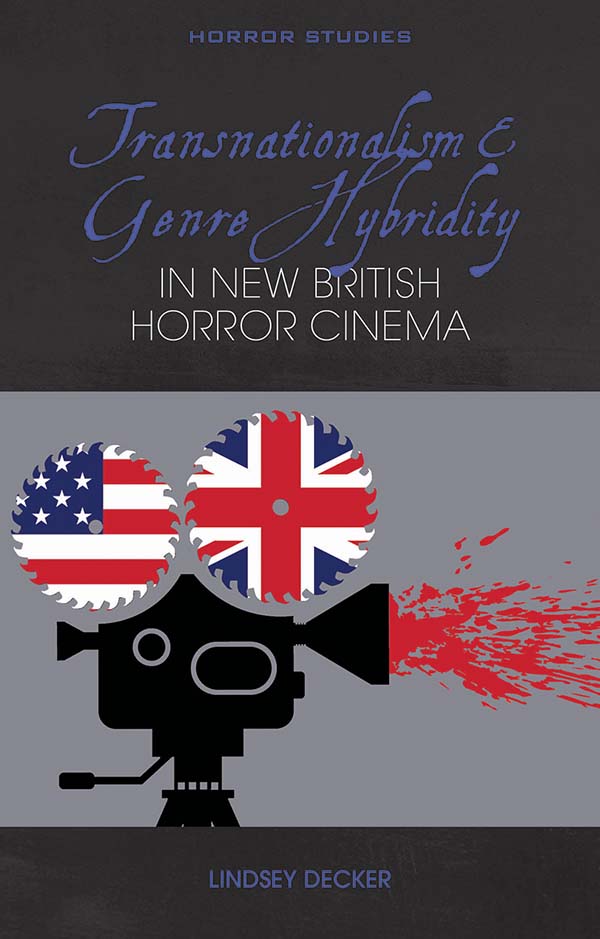Transnationalism and Genre Hybridity in New British Horror Cinema
Author(s) Lindsey Decker
Language: English
Genre(s): Media, Film and Theatre
Series: Horror Studies
- March 2021 · 288 pages ·216x138mm
- · Paperback - 9781786836984
- · eBook - pdf - 9781786836991
- · eBook - epub - 9781786837004
About The Book
As an intervention in conversations on transnationalism, film culture and genre theory, this book theorises transnational genre hybridity – combining tropes from foreign and domestic genres – as a way to think about films through a global and local framework. Taking the British horror resurgence of the 2000s as case study, genre studies are here combined with close formal analysis to argue that embracing transnational genre hybridity enabled the boom; starting in 2002, the resurgence saw British horror film production outpace the golden age of British horror. Yet, resurgence films like 28 Days Later and Shaun of the Dead had to reckon with horror’s vilified status in the UK, a continuation of attitudes perpetuated by middle-brow film critics who coded horror as dangerous and Americanised. Moving beyond British cinema studies’ focus on the national, this book also presents a fresh take on long-standing issues in British cinema, including genre and film culture.
Contents
Acknowledgements
List of Illustrations
Introduction: Frights, Film Culture and Genre Hybrids: Examining Transnational Genre Hybridity in New British Horror Cinema
1 The ‘Bastard Child of Mainstream Cinema’: Middlebrow British Film Culture, Transnationalism and Horror
2 The Golden Age of British Cinema is Undead: British Zombies and The Social Realist Impulse
3 Hybrid Hoodie Horrors: Genre Localization and Britain’s Moral Panic
4 ‘A Famous Corpse’: Resurrecting Hammer’s Transnational Appeal
Conclusion – British Horror’s Perpetually ‘Dying Light’
Notes
References
Filmography
Index


